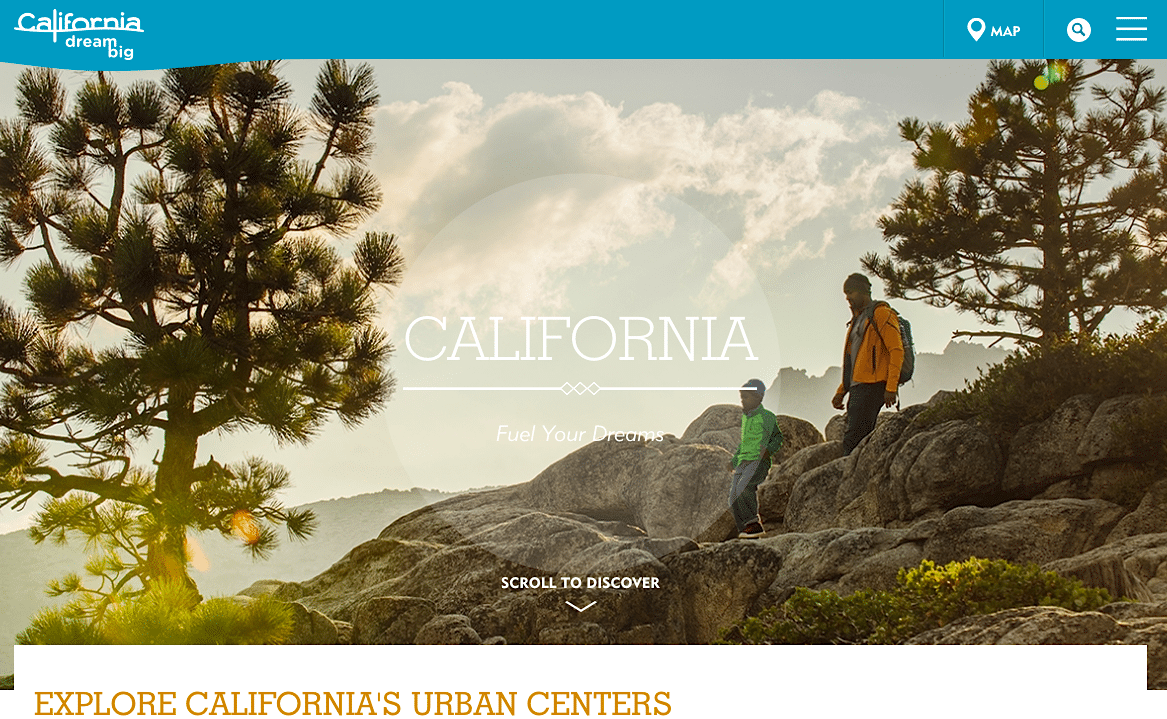Skift Take
Although the jump in funding will help Visit California embark on more ambitious marketing projects in more markets, the amount of time and procedure it took to make it happen highlights the achilles heel of the destination marketing industry.
Visit California will double its annual budget from $50 million to more than $100 million in 2015, the tourism board’s CEO Caroline Beteta announced last week.
The significant jump will come as a result of increased assessments levied on hotels, restaurants, rental cars and attractions. Assessments are a small percentage taken from travel- and tourism-related transactions.
The new budget is the result of a years-long process known as the Dream Big Dividend.
The process, led by the Visit California Board of Directors, culminated in a December vote in which 75 percent of 9,500 participating businesses voted to increase assessment rates, which determine their contributions to Visit California budget.
In 2012, the board of directors started researching what the optimal budget would be to adequately promote the state around the U.S. and abroad. They worked with Oxford Economics, decided on an ideal budget of $100 million, and then started to explore ways to reach that level.
“There wasn’t enough funding to do anything broadly without taking away from something else,” explains Visit California spokesperson Ryan Becker.
“Do you really want to diminish your domestic advertising that’s delivering a great ROI to put it into a market that’s probably is going to be amazing but isn’t quite there yet?”
China is one such market which has grown by the double-digits every year to become California’s top overseas market. More than 819,000 visitors arrived from China in 2013.
Visit California’s previous budget was capped at $50 million with each sector contributing just $650 per $1 million in travel- and tourism-related revenues.
Car rental companies were the only sector which operated separately as it was responsible for helping Visit California bridge the gap between companies’ contributions and the final $50 million budget. The budget no longer has a cap and the car rental sector’s contribution is now set to 3.5 percent.
The accommodations’ sector’s contribution was increased the most from $650 to $1,950 while all of other sectors’ contributions was increased from $650 to $975.
The accommodations sector cast more than twice as many votes as any other segment including attractions and recreation, restaurants and retail, transportation, and passenger car rentals.
“The accommodations segment had a great deal to gain from this process,” says Ed Fuller, Orange County Visitors Association CEO.
“Their involvement was a statement of support for the entire program. Hotels feel very confident that they’re going to benefit from the efforts of Visit California.”
The full chart can be seen below.
| Sector | New Assessment Rates (per $1 million) | Old Assessment Rates (per $1 million) |
|---|---|---|
| Accommodations | $1,950 | $650 |
| Attractions & Recreation | $975 | $650 |
| Restaurants & retail | $975 | $650 |
| Transportation & Travel SErvices | $975 | $650 |
| Passenger Car Rental | < 3.5% | Varied |
The Daily Newsletter
Our daily coverage of the global travel industry. Written by editors and analysts from across Skift’s brands.
Have a confidential tip for Skift? Get in touch
Tags: budget, marketing, visitcalifornia
Photo credit: The homepage of Visit California. Visit California
